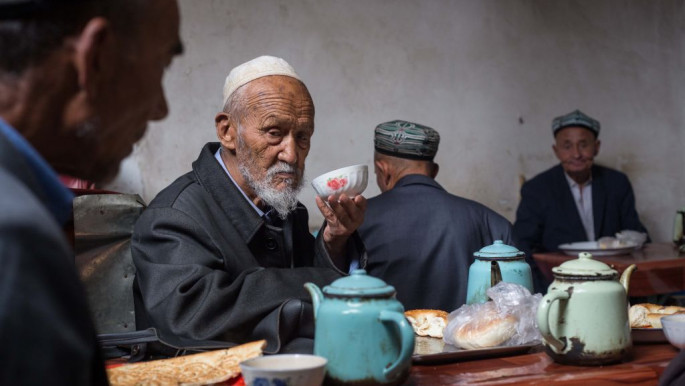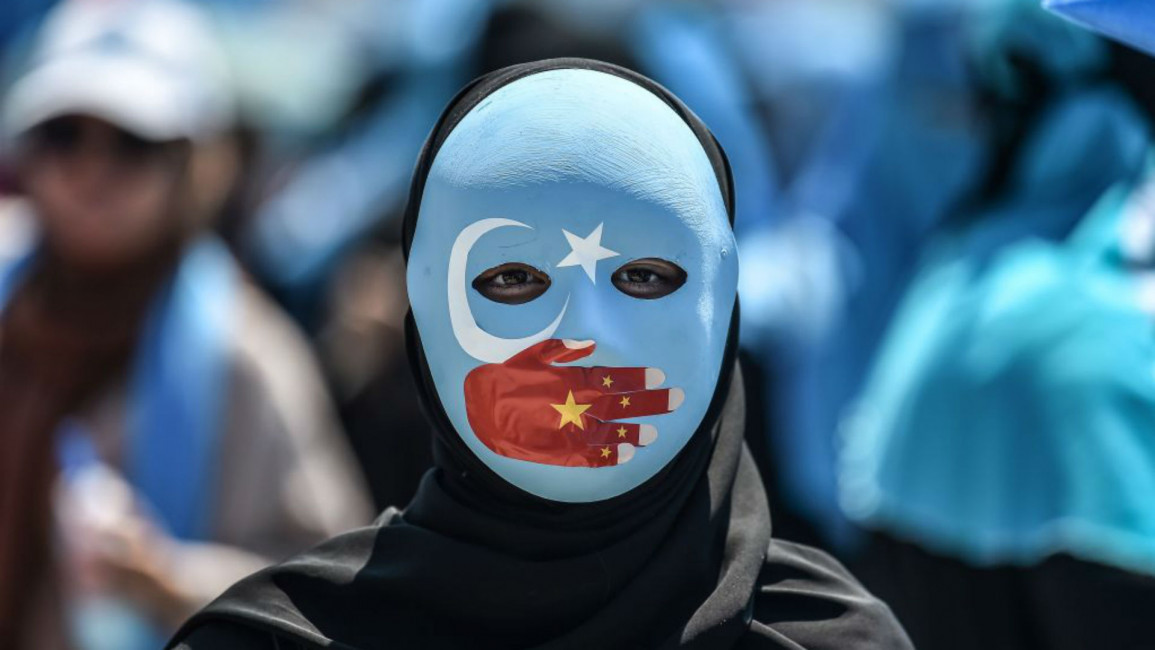
The Uighur Muslim crisis is worse than you think
For the past several years, barely more than a trickle of information has seeped out of the tightly controlled Chinese occupied territory, but what we do know suggests China is using an array of brutal measures to eradicate any vestige of Uighur culture.
These measures include a total ban on any form of expression of Islam in Xinjiang. China has not only shut down mosques, but also has banned all Islamic texts, including the Quran, while Muslim sounding names are also outlawed, as are beards and clothing that suggest adherence to the Islamic faith.
More recently, China has made it mandatory for all Uighur Muslims to have their motorbikes and cars fitted with a GPS tracking device, so that authorities can pinpoint any Uighur at any given moment.
If you're thinking this sounds like the making a dystopian futuristic novel, then consider also the fact that Chinese police in the province have been fitted out with "smart glasses," which use facial recognition software to identify Uighur Muslims on trains, buses and in public places.
Linked to a central database, the "smart glasses" are designed to notify a patrolling officer when a Uighur Muslim has moved beyond his orher 'safe area', that is home or place of work.
These hardline measures form just the tip of the iceberg, however. Uighur Muslims who refuse to give up their Muslim identity are forced into what China calls "reeducation camps", which are designed to convert Uighur Muslims to the official ideology of the state: Atheism.
 |
'Smart glasses' use facial recognition software to identify Uighur Muslims on trains, buses and in public places |  |
"We target people who are religious… for example, those who grow beards despite being young," one Chinese government officer admitted in a report.
According to reports from human rights watchers, China has ordered its officials in Xinjiang to send almost half of its population to "re-education camps." For those who stubbornly defy China's indoctrination programme, prison or forced disappearance awaits.
Alarmingly, these reports do little to convey the extent of the horror taking place against Uighur Muslims in East Turkistan today.
Interviews I have conducted with several Uighur Muslim refugees who have escaped persecution and likely death at the hands of the Chinese government have confirmed as such.
When I spoke with Sadam Musapir, a Uighur Muslim who successfully applied for asylum seeker status in 2017 while on a student visa in Australia, he told me China is now incarcerating any Uighur Muslim who attempts to travel abroad. His wife and nine-month-old child suffered just that, as the authorities fear the world will learn the full depth and breadth of China's orchestrated campaign to culturally eradicate the Uighur people.
"In 60 days time from now, when my baby son, who I haven't seen yet turns one year of age, China will imprison my wife for five years, and then sell my baby to adoption agencies," Musapir told me.
When I asked why China was taking this action against his wife and child, he explained that they arrested her for trying to leave the country to join him in Australia. "China is desperate for the world not to know what is happening there [Xinjiang]," said Musapir.
 |
|
| Uighur Muslims who refuse to give up their Muslim identity can be forced into what China calls 'reeducation camps' [Anadolu] |
His account tallies with that of Seven Zhang, a Hui Muslim who now resides in the United States. Zhang explained to me that his wife was arrested and falsely accused of illegally crossing the border on 18 January, 2016, and taken to Jinwuhzen Police Department. Less than four weeks after her arrest, Zhang's cancer-stricken wife fell into a coma after being subjected to torture and ill-treatment.
In the weeks and months following his wife's death, Zhang demanded justice from his government, but instead of compensation or even a hearing, Zhang alleges Chinese authorities tried to kill him in what he described as a "motorcycle accident manipulation".
 |
For the past several years, barely more than a trickle of information has seeped out of the tightly controlled Chinese occupied territory |  |
When I asked what he meant by "traffic accident manipulation," he told me a common method deployed by Chinese authorities to silence critics, is to dress up an assassination to look like a motor accident.
Fearing for his life, Zhang fled China for the United States in 2017, where he still lives today, but in constant fear his home country will come seeking vengeance.
Read more: Chinese authorities ban Muslim children from attending religious events over winter break
This effort by China to keep a lid on what is taking place under its watch in Xinjiang was also recently documented by The Washington Post, detailing the lengths Chinese authorities are willing to go to in order to silence those who threaten to expose their efforts to ethnically cleanse the Uighur Muslim population.
"China's security services have detained several close relatives of four US-based reporters working for Radio Free Asia in an apparent attempt to intimidate or punish them for their coverage of the Muslim-majority Xinjiang region," writes The Washington Post. One of the relatives of those arrested said, "Chinese authorities have contacted family members living in Xinjiang, urging them to ask him to stop calling and reporting on events in the region."
Twitter Post
|
Despite what the international community knows about China's grave injustices against the Uighur people, international bodies, such as the United Nations, have failed to intervene or even offer stern condemnation.
This global silence can be partly blamed on China attempting to anchor Uighur Muslim aspirations for liberation with "War on Terror" discourse, with China successfully convincing the United States and its allies that it, like them, was at war with "radical Islam".
With that said, there are signs the world is now waking up to China's game, with the United States representative to the UN for economic and social affairs, accusing the Chinese government of blocking a Uighur activist entering the UN headquarters in New York in May, as reported by Foreign Policy.
"This is a very sad and disappointing day," Kelly Currie, the US representative, told UN delegates, accusing China of attempting to silence the persecuted Uighur minority by accusing the Uighur activist, Dolkun Isa, of being a terrorist.
Currie scoffed at China's ridiculous assertion, saying, "If Mr Isa were in fact an actual terrorist… do you seriously think we would be inviting [him] into this country and giving him free rein to travel about? Give me a break!" - while noting that the US had granted the Uighur activist a 10-year multiple-entry visa.
The US had seen the Asian power as an ally in the "war on terror," but the tide has now turned, and one can only hope that the international community will soon pressure China into allowing 12 million Uighur Muslims to live on their land in peace.
CJ Werleman is the author of 'Crucifying America', 'God Hates You, Hate Him Back' and 'Koran Curious', and is the host of Foreign Object.
Follow him on Twitter: @cjwerleman
Opinions expressed in this article remain those of the author and do not necessarily represent those of The New Arab, its editorial board or staff.




